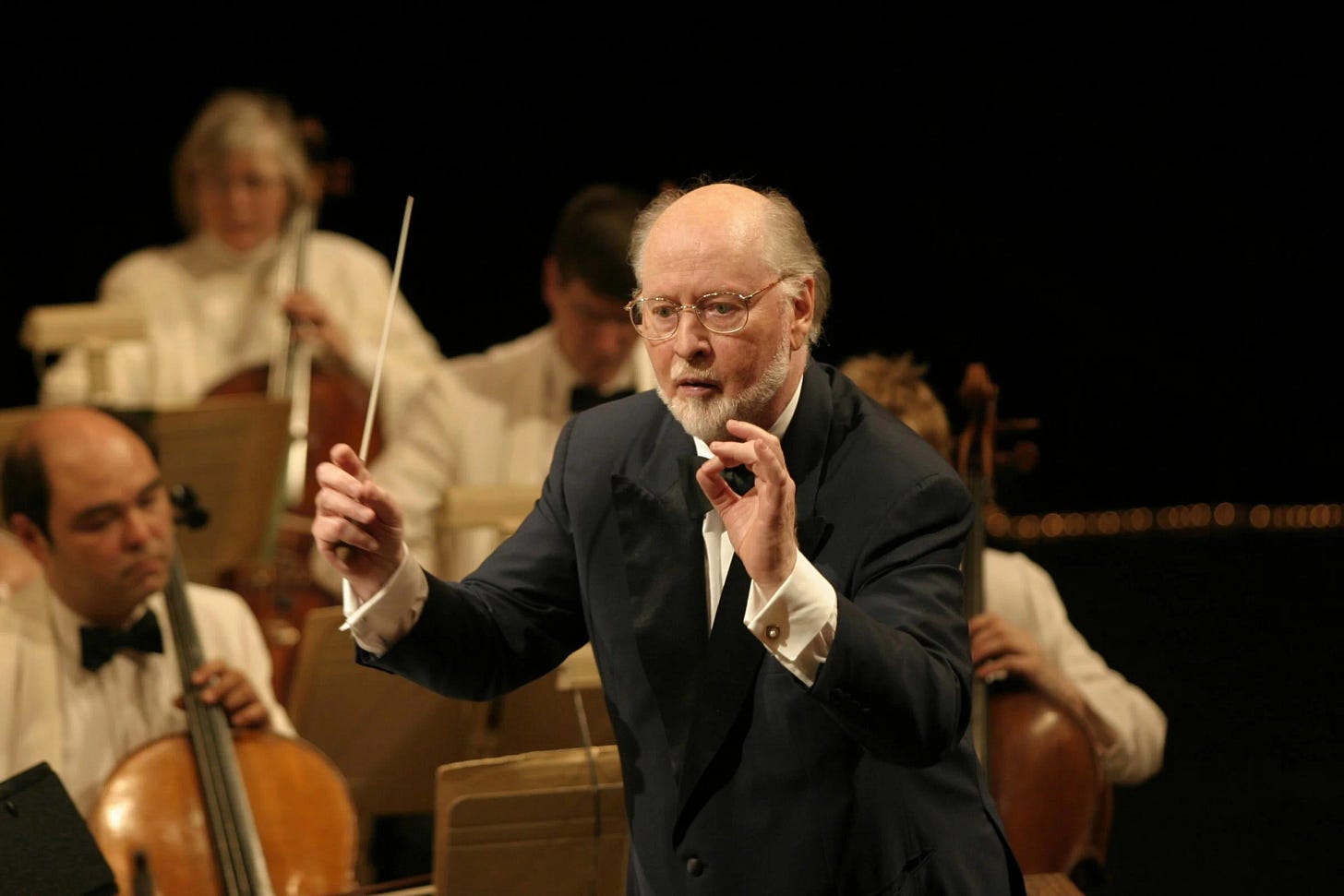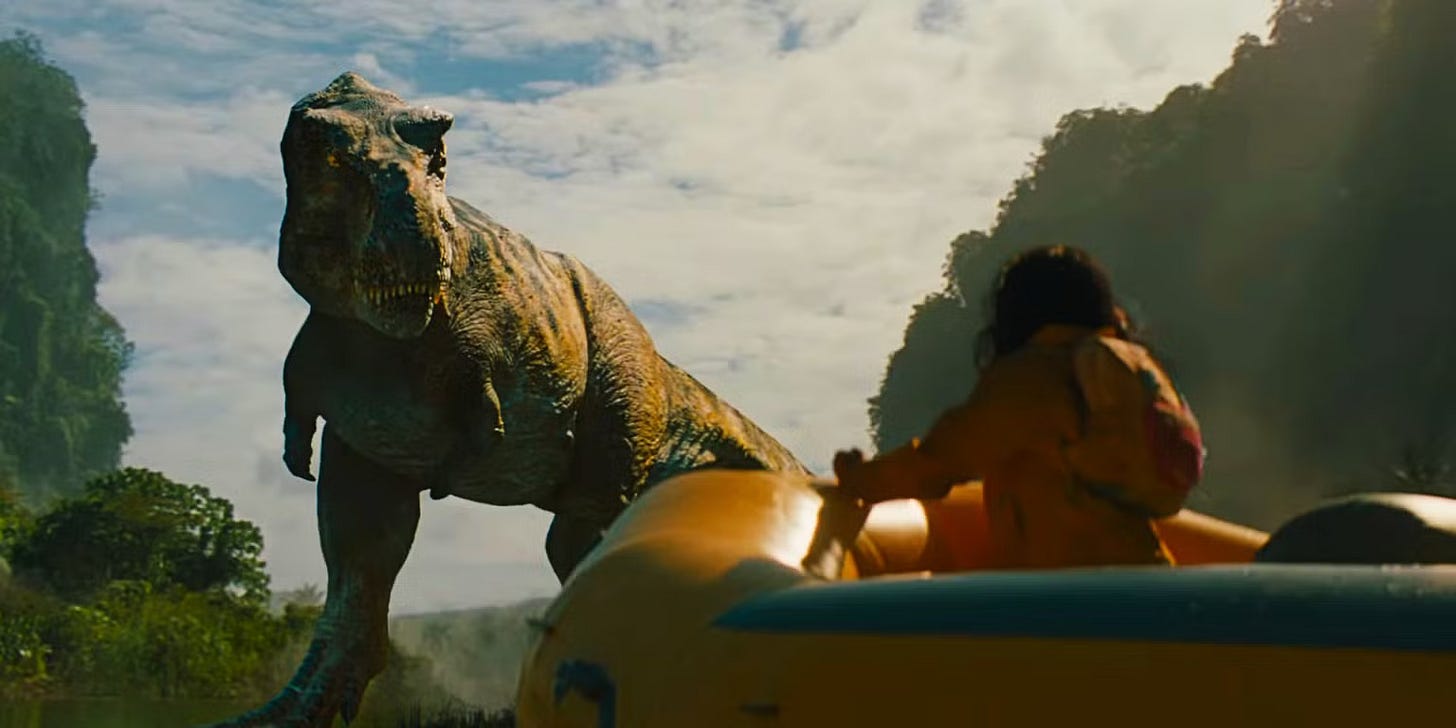My first love was dinosaurs. My second was music. My third was filmmaking.
One day, they all combined in a film score that took my breath away—forever changing my perception of the power of music in film. It reversed the aging process and taught a grown man, once again, the power of that holy domain of childhood: the world of wonder.
A few years later, I was in the badlands of Colorado on a series of paleontological digs. I spent hours each day painstakingly applying dental tools to carefully uncover fossilized dinosaur bones, in the hope of retrieving from beneath the earth the ultimate treasure trove: a fully articulated sauropod and the skull of an Allosaurus with most of its original 64 teeth (now fossilized) intact.
At the first sign of fossilized bones, the themes of composer John Williams played in my mind. I looked out with awe on a landscape once inhabited by herds of magnificent, terrifying lizards. I imagined the 100-foot colossus beneath me, fossilized, as a living Brachiosaurus—head held high to the sky—moving not like an animal, but like a cathedral come to life. Each step landed like the beat of a forgotten drum. Graceful. Slow. Impossible.
And behind it—dozens more.
A herd.
A ballet of behemoths.
Their long necks undulated like reeds in a current.
They grazed, nuzzled, lumbered across the golden light of the field. Far in the distance, Parasaurolophus called to one another, their cries echoing like horns in a lost symphony.
It was real to me—more because of the music than CGI animation or cinematic legerdemain. It was real because, before I ever saw those images in Jurassic Park, the score had already entered the bloodstream of my consciousness.
The video above is me explaining these emotions and thoughts to an audience of budding filmmakers. I wanted them to understand that music is not an afterthought in great filmmaking—it is the spirit that animates the images. In the case of John Williams’ score for Jurassic Park, music is more than background—it’s the emotional DNA of the film.
Strip away the lush orchestration, and you're left with a technical marvel about resurrected dinosaurs. But with it? You've suddenly found your childhood again. The cynicism of the modern world is gone. You have entered the magical dimension of wonder.
The Soundtrack of Memory
Ask someone to hum a piece from Jurassic Park. They’ll probably give you the main theme.
But ask them what they felt—and they’ll tell you something deeper.
They’ll remember the childlike awe of seeing a giant creature raise its neck to the sun.
They’ll remember the thrill of being chased through the kitchen.
They’ll remember, in short, everything.
Because Williams’ score did what all great film music must do: it became invisible. Not absent, but absorbed.
Into our memory.
Into our emotion.
Into the very story itself.
A great musical score doesn’t just accompany a film—it elevates it. It speaks when words fall short, guiding the audience's emotions with invisible hands. A well-crafted score can turn an ordinary scene into a transcendent moment, imbuing images with weight, memory, and meaning. It transforms exposition into revelation, action into myth, silence into poetry. Without music, a film may inform or entertain—but with the right score, it can haunt, inspire, and endure. Music is the soul of cinema—the element that makes a movie not just seen, but felt.
This weekend, for the seventh time in my life, I left the theater having gone back to that thrilling, horrifying, enigmatic, magical, frightening, inspiring world of dinosaurs—having once again rediscovered my 9-year-old self. The film score was the magic carpet which brought me to that land of wonder.
Feel free to click the ❤️ button on this post so more people can discover it on Substack. Tell me 😍 what you think in the comments. Thank you friend!
To support me or our work at Ukraine Story, visit us at
Password: Victory
DW Phillips is a former dinosaur digger, a constitutional attorney, a filmmaker, journalist who directs Ukraine Story, a foundation for documentary reporting.

















Share this post